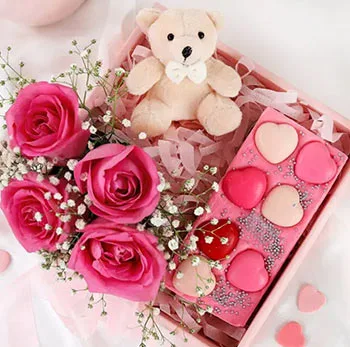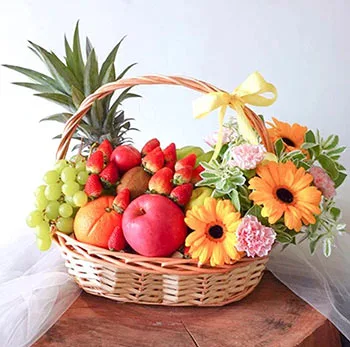Gift-Giving Etiquette in Japan: Understanding Gift Preferences Among Japanese Friends
In the land of cherry blossoms, ancient traditions, and a rich cultural tapestry, gift-giving holds a special place in the hearts of the Japanese people. Rooted in centuries-old customs and guided by a profound sense of respect, the act of giving and receiving gifts is a delicate art that carries deep meaning. In this article, we delve into the nuances of gift-giving etiquette in Japan, with a specific focus on understanding the gift preferences that resonate among Japanese friends. Whether you're near or far, the tradition of Sending Gifts to Japan through online gifts delivery bridges distances and allows you to partake in this beautiful cultural practice. Gift-giving in Japan transcends materialism; it is a profound manifestation of respect, gratitude, and the desire to nurture relationships. Among friends, the act of gifting is a poignant way to communicate sentiments, and the thoughtfulness behind the choice is treasured above all.
Online Gifts Delivery: Bridging Distances, Sharing Sentiments
In an increasingly interconnected world, Online Gifts Delivery in Japan has emerged as a convenient and meaningful way to participate in the tradition of gift-giving. This modern approach allows friends separated by oceans to express their sentiments and uphold cultural practices.
The Significance of Gift-Giving in Japanese Culture
Gift-giving in Japan is more than a mere exchange of material possessions; it is an expression of thoughtfulness, gratitude, and respect. Rooted in the concept of "omiyage," which translates to "souvenirs" or "gifts," this practice is deeply ingrained in Japanese society. When offering a gift, whether to a close friend or an acquaintance, it's an acknowledgement of the recipient's importance and a reflection of the giver's sincerity.
Gift Preferences Among Japanese Friends
Regional Delicacies: Japanese cuisine is a treasure trove of flavors, and gifting local or regional specialties is a common practice. Whether it's a box of intricately designed sweets from Kyoto or a selection of fresh seafood from Hokkaido, these edible gifts showcase a deep appreciation for the recipient's taste.
Elegant Arts and Crafts: Traditional arts and crafts hold a special place in Japanese culture. Exquisite items such as hand-painted ceramics, delicate tea sets, or intricately crafted textiles are cherished gifts that showcase the giver's understanding of Japanese aesthetics.
Stationery and Calligraphy Supplies: In a country where calligraphy is revered as a form of artistic expression, high- quality stationery and calligraphy supplies are popular gift choices. These items reflect the recipient's potential for creative pursuits.
Natural Beauty: The beauty of nature is highly regarded in Japan, and gifts that celebrate this connection are well- received. Bonsai trees, ornamental plants, or bonsai gardening kits symbolize growth, patience, and harmony. Personalized Gifts: Personalization adds a special touch to gift-giving. Customized items such as engraved accessories, monogrammed clothing, or personalized trinkets showcase the giver's effort to make the gift uniquely meaningful.
The Importance of Wrapping
In Japan, the presentation of a gift is as important as the gift itself. Impeccably wrapped presents reflect the giver's respect for the recipient and the significance of the occasion. The art of gift wrapping, known as "tsutsumi," involves meticulous folding, tying, and adorning with decorative elements such as washi paper, ribbons, and seasonal motifs.
Navigating Gift-Giving Etiquette
While the act of giving gifts is deeply appreciated, it's essential to be mindful of certain cultural norms and sensitivities.
Avoid Over-the-Top Gifts: In Japanese culture, modesty and humility are highly valued. Excessive or ostentatious gifts may be perceived as inappropriate or causing discomfort.
Always Include a Thoughtful Note: A handwritten note expressing gratitude, well-wishes, or personal sentiments adds a heartfelt touch to the gift.
Gift Exchanging Rituals: Be aware of certain customs, such as "ochugen" (mid-year gifts) and "oseibo" (year-end gifts), where gift exchanges are common. These occasions offer opportunities to strengthen friendships.
 |  |  |